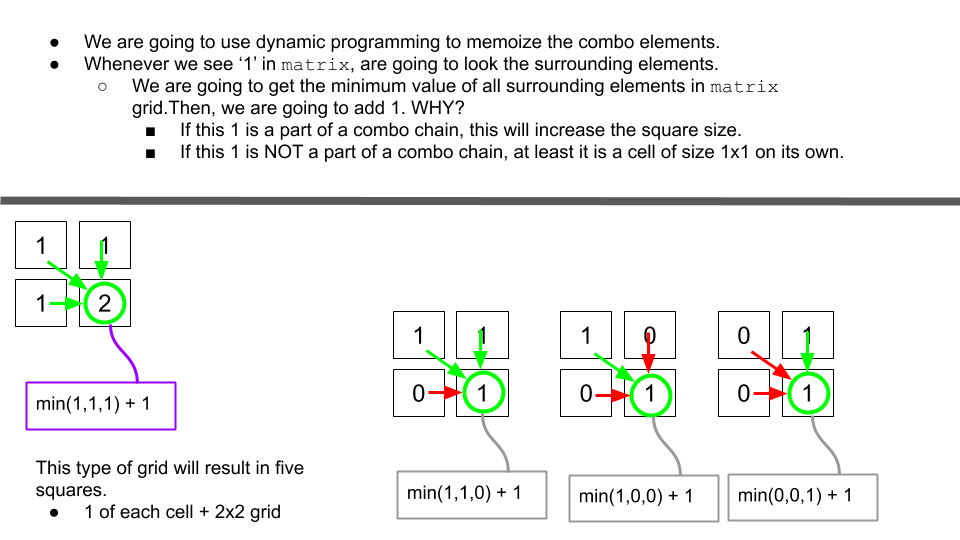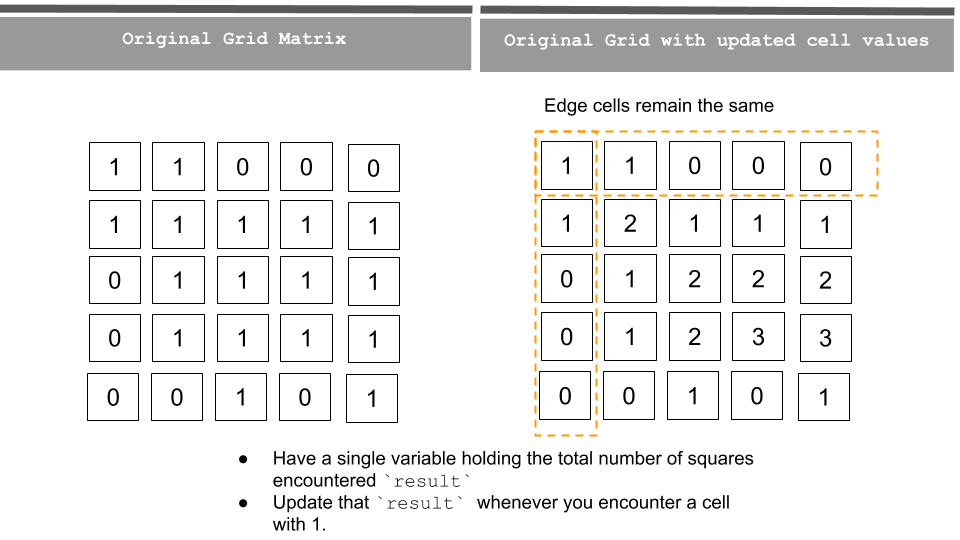37. Count Square Submatrices with All Ones
Input: matrix =
[
[0,1,1,1],
[1,1,1,1],
[0,1,1,1]
]
Output: 15
Explanation:
There are 10 squares of side 1.
There are 4 squares of side 2.
There is 1 square of side 3.
Total number of squares = 10 + 4 + 1 = 15.Input: matrix =
[
[1,0,1],
[1,1,0],
[1,1,0]
]
Output: 7
Explanation:
There are 6 squares of side 1.
There is 1 square of side 2.
Total number of squares = 6 + 1 = 7.Approach


Solution: (Dp)
Last updated